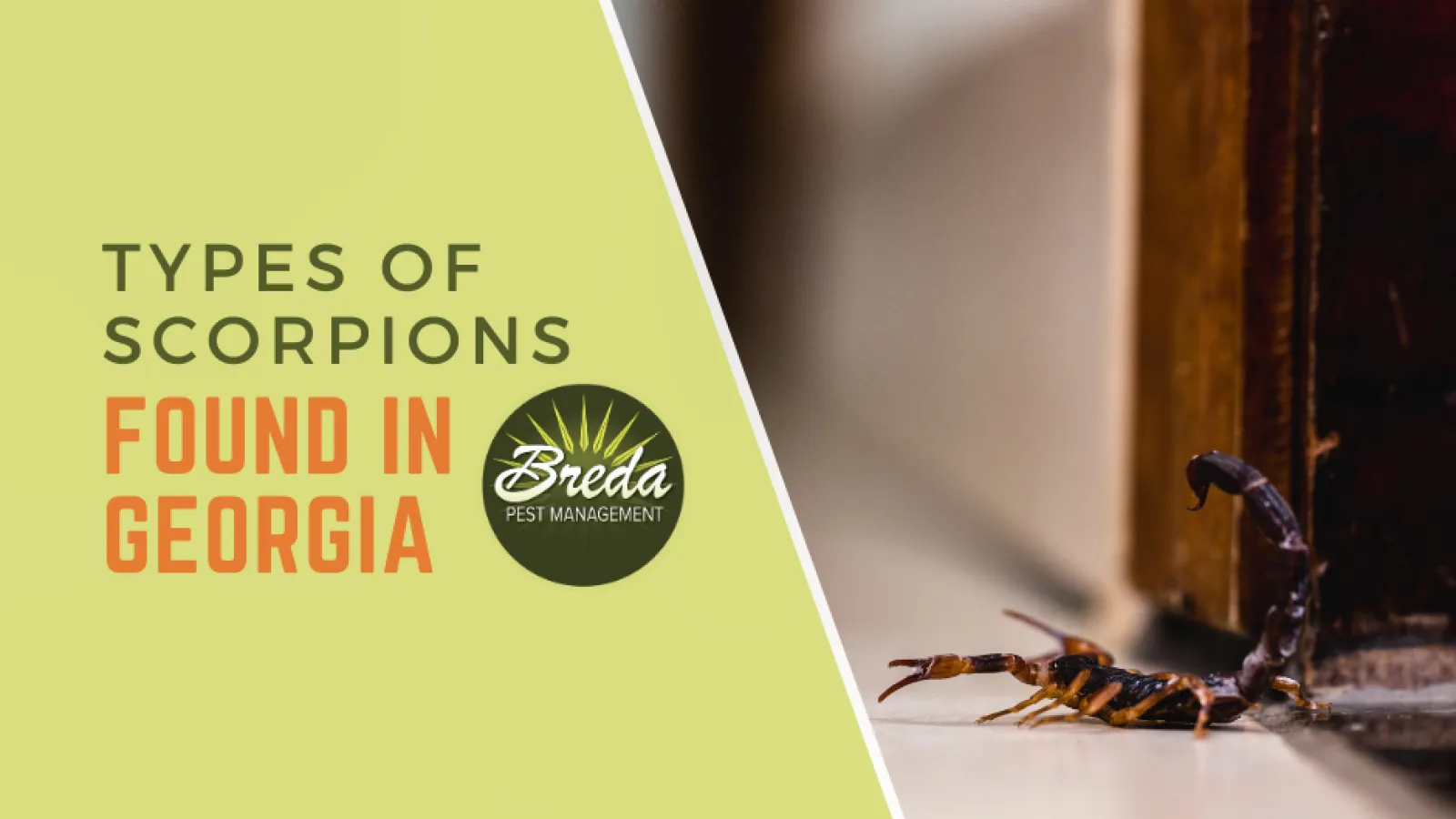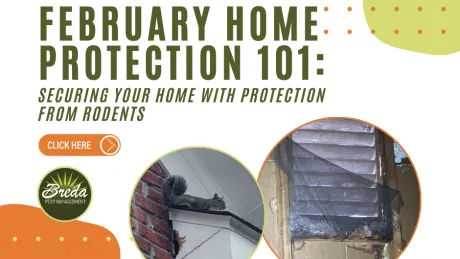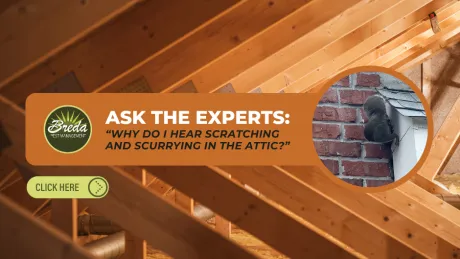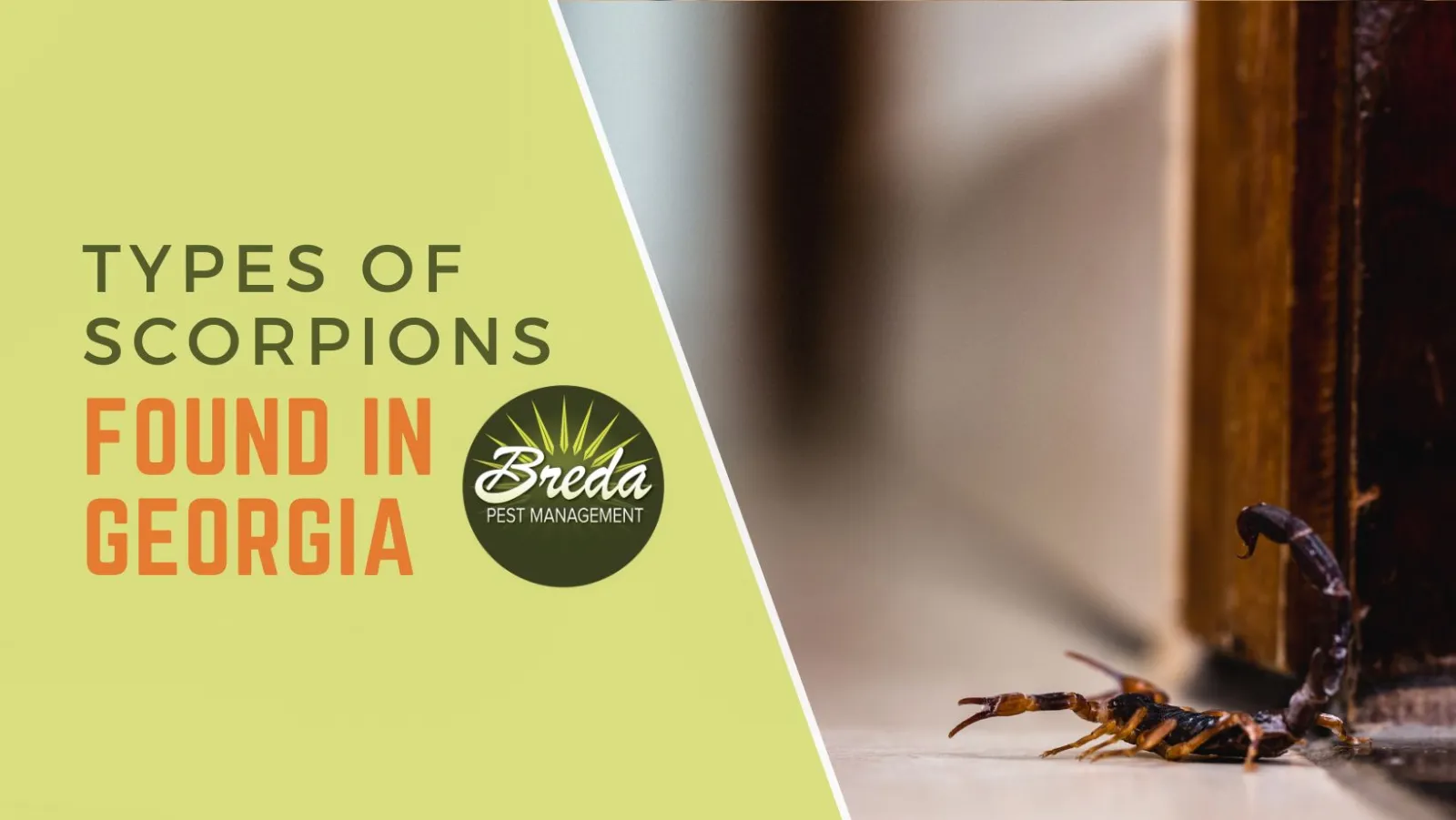
Scorpions in Georgia? You bet!
Did you know that Georgia has scorpions? You might think these critters are desert dwellers, but there are types of scorpions found in Georgia that have adapted to our climate. If you're going to be spending time outdoors hiking or camping this summer, learn about the types of scorpions you might stumble across and what to do if you happen to get stung by one!
What types of scorpions are found in Georgia?
There are really only two types of scorpions common in Georgia: the Southern Devil scorpion and the Striped Bark scorpion. Before you start to worry that the devil indeed went down to Georgia, the Southern Devil scorpion is more interested in stalking other insects than it is messing with humans. This scorpion can grow to be about 1" long and is a dark brown color.
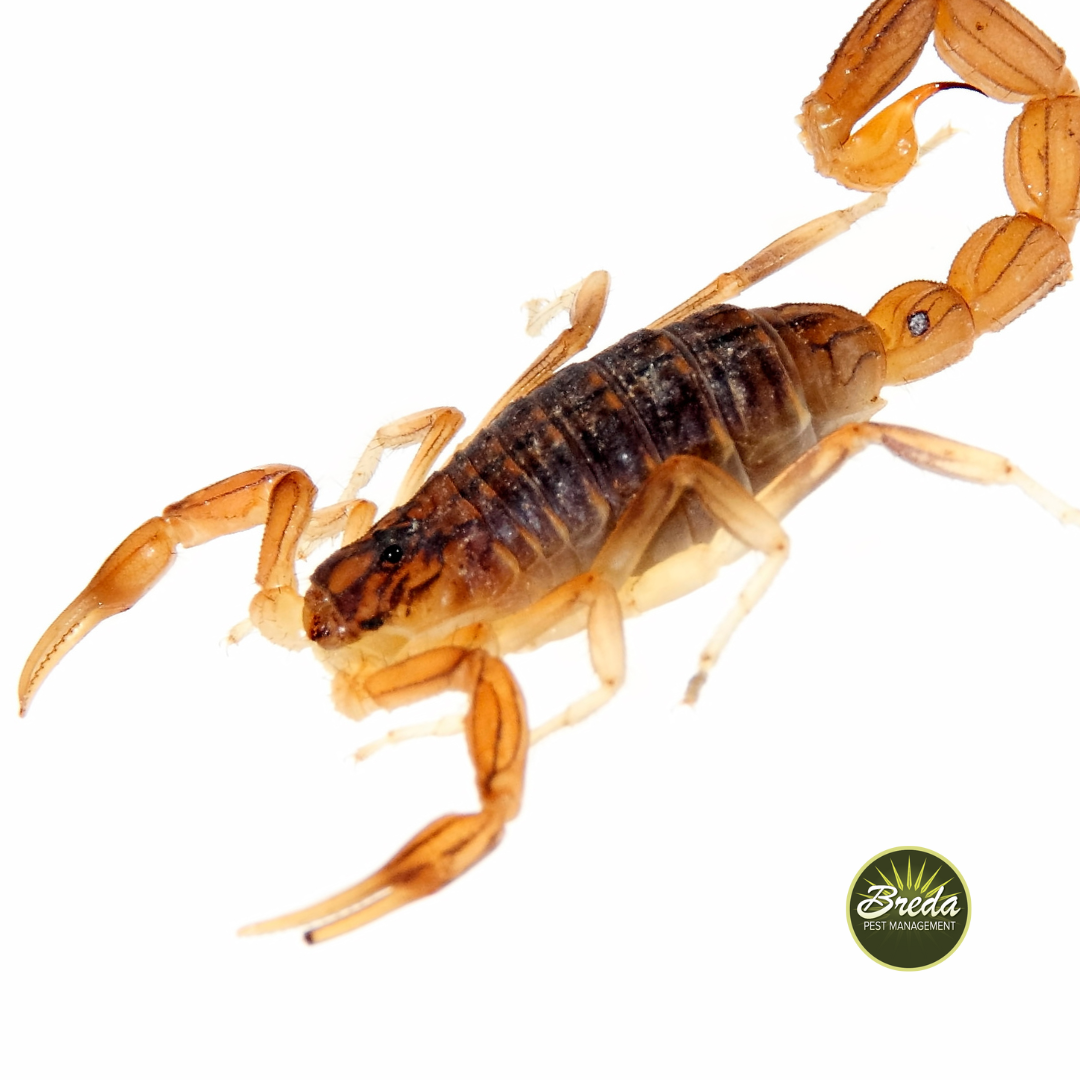
The Striped Bark scorpion is not native to Georgia but has been brought over via shipped goods. Striped Bark scorpions prefer sandy ground, so you are more likely to find this type of scorpion in the southern part of Georgia. These scorpions can grow to be a bit bigger than the Southern Devil scorpion (up to 2.75") and are lighter in color with two stripes on their back and a triangle on their head.
Where do scorpions like to live?
Since scorpions are nocturnal, you aren't likely to find them scurrying around during the day. They prefer to be underground or under cover during the day, which makes organic material like leaves and sticks an easy shelter for scorpions. Other outdoor places to check for scorpions would be toys, cushions, and storage containers. Scorpions can also be found in cooler, damp places like basements and crawl spaces.
Will a scorpion attack?
Thanks to their ominous-looking tail and National Geographic shows, scorpions have a very deadly reputation. These critters are normally not interested in going after humans at all. A scorpion's usual prey consists of large insects like spiders and centipedes, and they sometimes might even eat other scorpions.
If you do happen to get stung by a scorpion, rest assured that the sting will be very similar to a wasp or hornet sting. Scorpion stings do carry venom, but that venom is meant to be deadly to a scorpion's usual insect victims. If you are susceptible to anaphylactic shock, these stings could pose a risk, so take the necessary precautions when you're outside in an area where scorpions have been known to be.
If you find yourself needing pest control and want it handled thoroughly, don't hesitate to give us a call. The BREDA Guarantee promises to fix your pest problem and keep it fixed—no matter the circumstances. Schedule a consultation online or give us a call at 770-466-6700.
